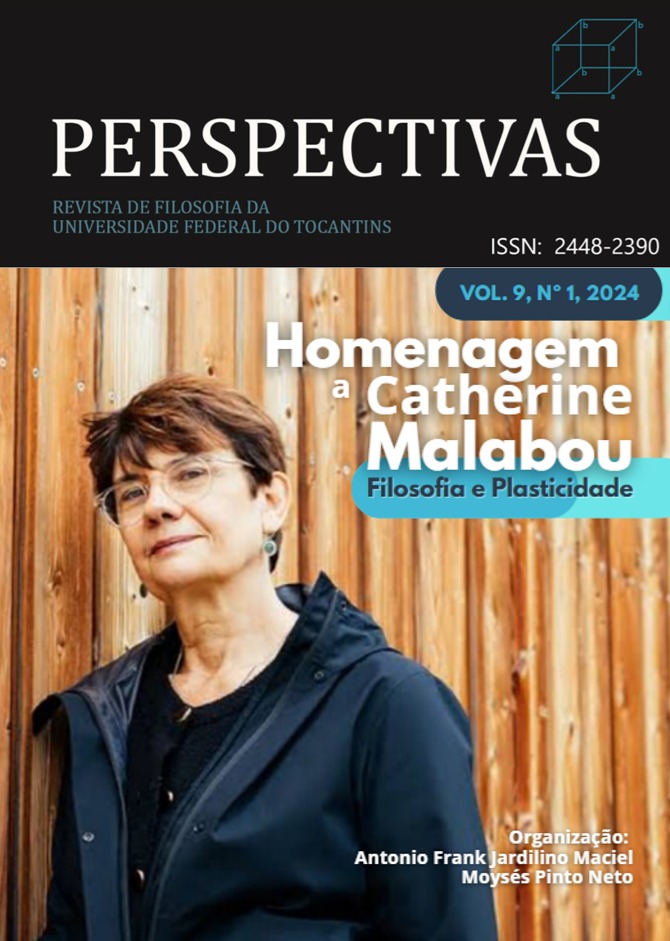Will Sovereignty Ever be Deconstructed?
DOI:
https://doi.org/10.20873/rpv9n1-00Keywords:
Biopolitics, Biological and symbolic, Plasticity, EpigeneticsAbstract
In a 1977 interview, Michel Foucault argues for the creation of a political philosophy detached from the concept of sovereignty, as “cutting off the king’s head” is impossible in political theory. Western democracies remain connected to this political and legal model, as there is no sovereignty without a ruler. This creates a need to deconstruct sovereignty in contemporary philosophy. Catherine Malabou contends that philosophers such as Foucault, Derrida, and Agamben have failed in this objective; by attempting to define what resists sovereignty, they inadvertently allow it to persist. Malabou turns to biopolitics, a concept introduced by Foucault and reformulated by Agamben and Derrida, which centers on the control of life. To deconstruct biopolitics, we need an intersection between biology and history, where the political subject and the living being meet. However, for Foucault, Agamben, and Derrida, biology is always linked to sovereignty, portrayed as a science that transgresses its limits to control life. Malabou argues that any biological resistance to biopower is impossible because the biological determination of life must be transgressed. She proposes the existence of two concepts of life: biological life and symbolic life, with the latter revealing the potential for resistance. For Malabou, new biological categories, such as epigenetics, can help find a new materialism. She asserts that epigenetics resists the political reduction of biology to a mere vehicle of power, revealing the intricate relationship between the biological and the symbolic without transgressing the biological. The dialectical plasticity of difference, rather than symbolic indifference, would be the most efficient way to deconstruct sovereignty, highlighting the revolutionary potential of biological mechanisms, especially epigenesis.
References
AGAMBEN, G. Homo sacer. O poder soberano e a vida nua I. Trad. H. Burigo. Belo Horizonte: Editora UFMG, 2007.
BENNETT, J. Vibrant Matter. A Political Ecology of Things. Durham e Londres: Duke University Press, 2010.
CHÂTELET, F. História da Filosofia: Ideias e Doutrinas, volume 8, O Século XX. São Paulo: Zahar Editora, 1973.
DELEUZE, G. “Em que se pode Reconhecer o Estruturalismo?”. In: CHÂTELET, F. História da Filosofia. Ideias e doutrinas. Volume 8. O Século XX. São Paulo: Zahar Editora, 1973.
DERRIDA, J. A Besta e o Soberano – Vol.1 – Seminário (2002-2002). Trad. F. Bernardo. Coimbra: Pali-mage, 2024.
DERRIDA, J. Acts of Religion Jacques Derrida. Ed, G. ANIDJAR. New York and London: Routledge, 2002.
FOUCAULT, M. História da sexualidade I: A vontade de saber. Trad. de M. T. da Costa Albuquerque e J. A. Guilhon Albuquerque. Rio de Janeiro: Edições Graal, 1988.
FOUCAULT, M. Microfisica del potere. Interventi politici. Ed, A. Fontata e P. Pasquino. Torino: Giulio Enaudi Editori, 1977.
FOUCAULT, M. Em defesa da sociedade: curso no Collège de France (1975-1976). Trad. M. E. Galvão. São Paulo: Martins Fontes, 2005
JABLONKA, E. e J. LAMB, M. Evolução em quatro dimensões: DNA, comportamento e a história da vida. Trad. C. Ângelo. São Paulo: Companhia das Letras, 2010.
JENUWEIN, T. “Epigenetics”. 2006. .
KANTOROWICZ, E. H. Os dois corpos do rei: um estudo sobre teologia política medieval. Trad. C. Knipel Moreira. São Paulo: Companhia das Letras, 1998.
LÉVI-STRAUSS, C. “Introdução à obra de Marcel Mauss”. In: MAUSS, M. Sociologia e antropologia. Trad., P. Neves, São Paulo: Cosac Naify, 2003, p. 11-46.
MAUSS, M. Sociologia e antropologia. Trad. P. Neves São Paulo: Cosac Naify, 2003.
SANTNER, E. The Royal Remains: The People’s Two Bodies and the Endgames of Sovereignty. Chicago: Uni-versity of Chicago Press, 2011
WADDINGTON, C. H. The epigenotype. Endeavour. Vol. 1. 1942.
Downloads
Published
Versions
- 2024-07-22 (4)
- 2024-07-21 (3)
- 2024-07-19 (2)
- 2024-07-18 (1)
How to Cite
Issue
Section
License
Copyright (c) 2024 Catherine Malabou

This work is licensed under a Creative Commons Attribution 4.0 International License.
The Magazine is under the Creative Commons Attribution 4.0 International Public License (CC BY 4.0), according to which:
1) The authors retain the copyright and grant the journal the right of first publication, with the work simultaneously licensed under the Creative Commons Attribution which allows the sharing of articles published with the recognition of authorship and initial publication in this journal.
2) Authors are authorized to enter into additional contracts separately for distribution of the version of the work published in this journal, as long as there is recognition of authorship and initial publication in Perspectivas.
3) Authors are authorized and encouraged to disseminate published texts with proper references to the journal and its authors.





















